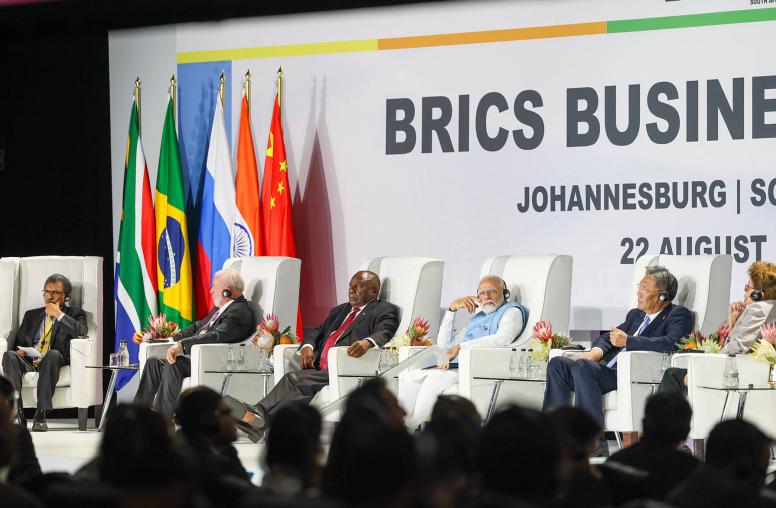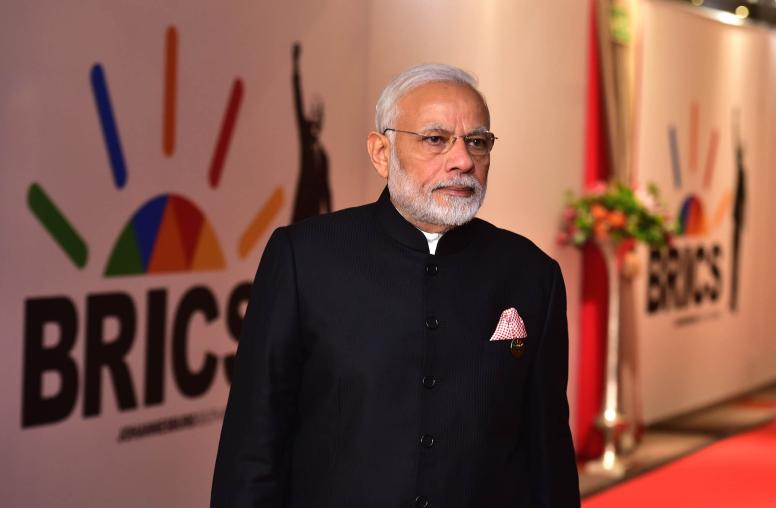Four Things to Know About President Trump’s Trip to India
Despite trade impasse, U.S.-India relations grow stronger after presidential visit.
President Trump’s recent trip to India yielded no progress on a bilateral trade agreement, one of the main issues both leaders hoped to address. Despite the trade impasse, both President Trump and Indian Prime Minister Narenda Modi used the two-day trip to reinforce the positive relationship between the U.S. and India, as official discussions finalized several defense and energy deals. USIP’s Vikram Singh looks at the state of trade talks, the possibility of U.S. mediation in Kashmir, India’s regional stance on the Afghan peace process, and how China’s growing global influence impacts U.S.-India relations.

Where do trade talks between the U.S. and India stand?
In a word: stuck. The U.S. and India remain far apart on trade despite what both sides say were constructive talks. If a presidential-level visit could not get them over the finish line, we should expect it to be months, not weeks, before any deal is announced. Some of the key issues remaining are things like access for U.S. agricultural products, tariffs on both sides, intellectual property, and India's concern about visas for high-skilled workers seeking jobs in the United States.
President Trump has said he would like to serve as a mediator between India and Pakistan over Kashmir. What is India’s position on U.S. mediation of this long-running conflict?
India rejects any outside mediation over Kashmir. That has not changed across several Indian administrations or between Indian political parties. Recent moves by India to consolidate control in Kashmir have been met with widespread protests in India and expressions of concern in the U.S. and other western capitals. Those protests took a tragic and deadly turn in New Delhi during the president’s visit. Anything that raises tensions between two nuclear-armed neighbors is viewed with concern, of course. But there is no reason to think India would change its stance on mediation. Notwithstanding the president’s offer, this administration—like its two immediate predecessors—does not link India and Pakistan in most policymaking.
How does China’s rise impact U.S.-Indian relations?
U.S.-India ties have been on an upward path for 20 years and probably would have been regardless of China's development. But in that time, China’s GDP has gone from being an eighth the size of the United States to being on par with the U.S.—and on the way to becoming the world's largest economy. So, China has grown into a geopolitical driver of U.S.-India cooperation.
China's rise means both countries are contending with far greater Chinese military capabilities. For India, this includes a Chinese build-up along a contested land border and Chinese ships and submarines operating in waters near India's coast. For the U.S., a much stronger India is a potential counterbalance to China's growing power. So, it’s not surprising that even though a trade deal fell through on this presidential visit, defense sales were rosy—with over $3 billion announced and more on the way.
How can India support the Afghan peace process and is Delhi interested in doing so?
India is ambivalent at best and sees any deal with the Taliban as high risk and contrary to Indian interests. Ultimately, however, a peaceful Afghanistan is in the interest of every regional power, including India. India could play a helpful role by standing up for the millions of Afghans who reject backsliding on human rights and the rule of law in any peace deal. India is a true friend to the government in Kabul and could encourage them to engage in talks and help them ensure a good outcome. But distrust of any possible deal with the Taliban runs deep in India.



